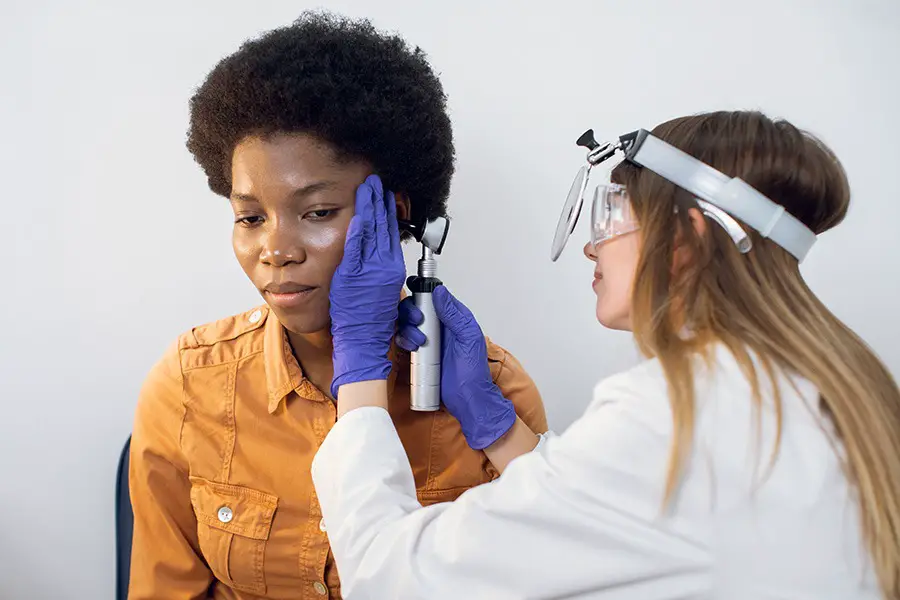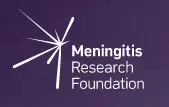Introduction
Meningitis, a severe and at times life-threatening infection, often leaves survivors with lasting effects such as hearing loss. This consequence significantly alters an individual’s life quality. In this educative and motivational guide, The Proactive Advocate, we will explore the complex connection between meningitis and hearing loss, providing essential insights and guidance for those grappling with this condition. By comprehending the association between these two health problems, you will be better prepared to tackle the triumphs and tribulations that await on your path to improved hearing and overall health.
Understanding Meningitis-Triggered Hearing Loss
The intricate link between meningitis and hearing loss continues to be an area of active research. This disease, characterized by the inflammation of the protective membranes around the brain and spinal cord, can be triggered by various causes such as bacteria, viruses, and fungi. If the infection reaches the inner ear, it may harm the delicate hair cells responsible for conveying sound signals to the brain, leading to hearing loss.
Meningitis-triggered hearing loss can affect both adults and children, but infants are particularly susceptible due to their evolving immune systems. Timely detection and immediate treatment are key to reducing the likelihood of permanent hearing loss, making it crucial for both healthcare professionals and the public to be aware and understand this association.
Preventive Measures, Diagnosis, and Treatment Techniques
Preventing meningitis and its associated hearing loss primarily involves vaccination. A variety of vaccines exist to shield against different strains of meningitis, including those instigated by bacteria, viruses, and fungi. It is advisable to consult with your healthcare provider to establish a suitable vaccination schedule for yourself and your family.
Diagnosis of meningitis-induced hearing loss necessitates a thorough evaluation by an audiologist, employing a series of tests to measure your hearing capacities. These examinations may include pure-tone audiometry, speech audiometry, and tympanometry, among others. Once a diagnosis is confirmed, your healthcare team will collaborate with you to devise a personalized treatment strategy. This might involve hearing aids or cochlear implants, speech therapy, and a range of support services aimed at helping you adjust to life with hearing loss.
QUIZ - AVAILABLE TREATMENTS FOR TINNITUS
Tips and Strategies
Coping with hearing loss post-meningitis can present significant challenges, but employing effective coping strategies can greatly enhance your life quality. One such strategy involves being an engaged participant in your hearing healthcare by educating yourself about your condition, exploring the latest treatment options, and advocating for your needs.
A vital coping strategy is maintaining robust connections with others. Building relationships with friends, family, and support groups can offer valuable emotional backing and practical advice. Sharing your experiences and learning from others who have undergone similar trials can help alleviate feelings of isolation and cultivate a sense of empowerment.
Once the diagnosis and treatment of meningitis have been confirmed, it’s crucial to keep track of any alterations or anomalies in your hearing. Regular consultations with an audiologist should be scheduled for assessing your hearing capabilities and early detection of any potential hearing loss. Early intervention enhances the possibility of maintaining your hearing and staving off additional complications.
The Path to Improved Hearing Following Meningitis
The journey towards improved hearing after meningitis can be arduous, yet with the right assistance and resources, it’s feasible to surmount these hurdles. Hearing aids or cochlear implants may be included in the treatment approaches for meningitis-induced hearing loss, depending on the severity of your hearing impairment. These tools can substantially enhance your communication capabilities and your interaction with your surroundings.
Alongside medical treatments, rehabilitative services such as speech therapy, auditory training, and counseling can significantly contribute to your path to improved hearing. Collaborating with a committed team of professionals, you can cultivate the necessary skills and strategies to excel in a world oriented towards hearing.
Conclusion
Meningitis, a serious and potentially fatal infection, has been intricately linked with hearing loss, a life-altering side effect that can dramatically affect one’s quality of life. This guide provides an in-depth understanding of this complex relationship and the science behind meningitis-induced hearing loss. The infection, which causes inflammation in the protective membranes surrounding the brain and spinal cord, can damage the delicate hair cells responsible for transmitting sound signals, leading to hearing loss.
The significance of early detection, diagnosis, and the development of personalized treatment strategies for meningitis and the resultant hearing loss cannot be overstated. Preventive measures, such as vaccination, and a comprehensive evaluation by a healthcare professional, can play a pivotal role in managing the impact of this condition. The journey post-diagnosis involves coping strategies that include educating oneself about the condition, seeking up-to-date treatments, and fostering strong emotional connections with loved ones and support groups.
The struggle of living with meningitis-induced hearing loss often goes unnoticed by those around you. However, clear communication about your needs and the specific challenges you face can foster a more supportive environment. It’s also beneficial to connect with others who have experienced similar circumstances, providing you with valuable insights and a reassuring reminder that you’re not alone in this journey.
An in-depth understanding of the link between meningitis and hearing loss is vital for healthcare professionals and those affected by the condition. Current research aims to create new therapies and interventions to prevent or even reverse the effects of this infection, offering a glimmer of hope for a future with improved hearing and overall well-being.
Early detection of meningitis and subsequent hearing loss is key in minimizing the risk of long-term complications. Regular audiologist consultations are essential for early detection and intervention, improving the chances of preserving hearing and preventing further complications.
The path to better hearing following a meningitis diagnosis can be challenging but is surmountable with the right resources and support. Various treatment options and rehabilitation services can aid in enhancing your ability to communicate and interact with the world. It’s crucial to remember that you’re not alone in this journey. By seeking out the best care, you can take control of your hearing health, improve your overall quality of life, and lean on the support of friends, family, and fellow meningitis survivors as you navigate towards improved hearing and well-being.

Decoding Silence: An Analytical View on the Advances in Conductive Hearing Loss Research and Treatment
This analytical article sheds light on conductive hearing loss, offering an in-depth exploration of its genetic factors, treatment advances, and promising experimental therapies.

Embracing the Melody of Life: Navigating the Journey with Conductive Hearing Loss
A blog post delving into the experiences and challenges of living with conductive hearing loss, discussing its impact on everyday life, social interactions, mental health, and the potential benefits of hearing aids and cochlear implants.





